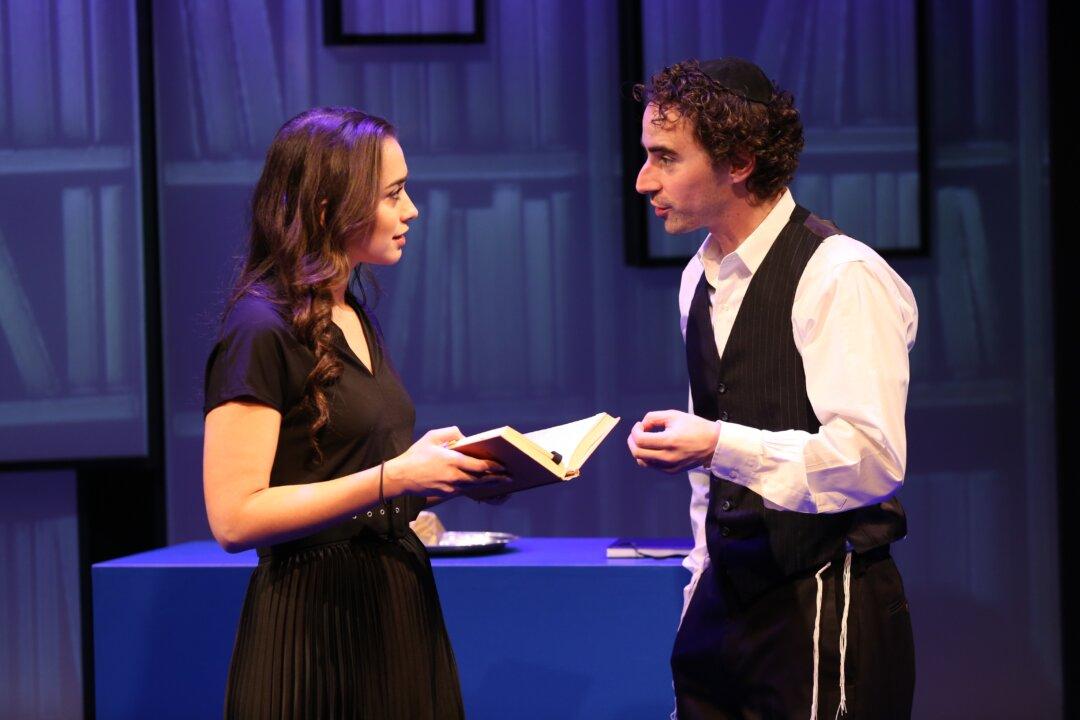NEW YORK— Can two people from completely different worlds find common ground? This is the underlying idea of Cary Gitter’s touching romantic comedy “The Sabbath Girl.” Presented by the Penguin Rep Theatre, the work is now having its New York premiere.
Thirty-year-old Italian-American Angie (Lauren Annunziata) is on top of her game professionally. She’s just moved into a new apartment on New York City’s Upper West Side—her first place without roommates—and is the head curator of a prestigious art gallery in Chelsea, a gallery that specializes in showcasing cutting-edge artists.





